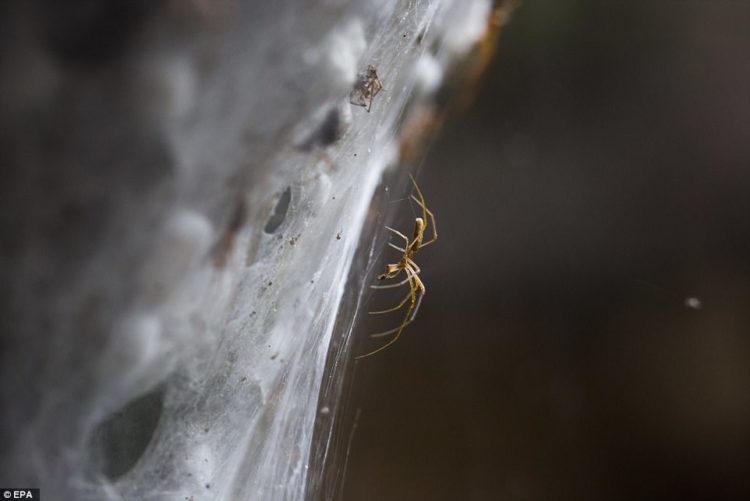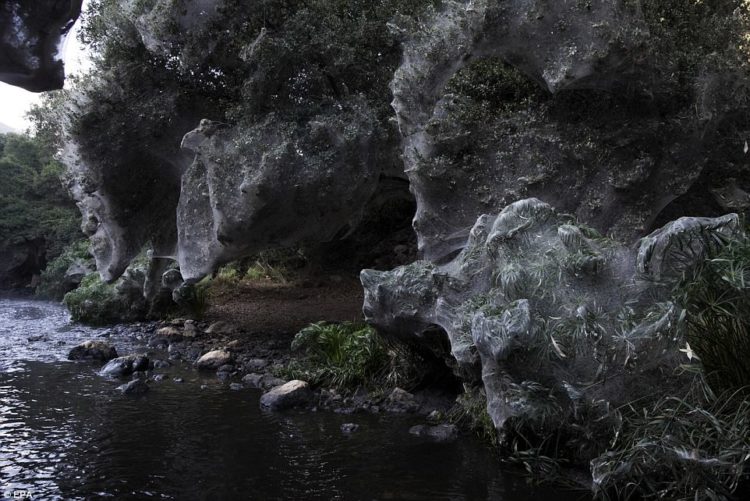The Massive Spider Webs Created an Ideal Home. On the banks of a creek near Jerusalem Israel, stands a captivated forest, where its trees are shrouded by huge cobwebs woven by long-jawed spiders. The Soreq creek covers treated sewage that is full of nutrients that help the proliferation of mosquitoes. These serve as a source of food for improbable web-spinning spiders which then replicate in multitudes, weaving captivating and eerie webs above the water.
It’s an exceptional case, as millions of long-jawed spiders shaped the webbing that envelops the forest, a marvel rarely seen in the Middle East. But while spider egg sacs and spiderlings are everywhere along the banks of the creek, the future is bleak. Moreover, the colder temperatures will soon cause a radical drop in the mosquito population that sustains the web weavers.
So when the end of the summer, the spider’s mate and the female will lay eggs before dying. The long-jawed spiders are found in clammy or swamp habitats all over the world. They usually have long slim bodies with shiny abdomens; sit in their web or on a close plant and wait for prey to fly into their trap. They feed on flying insects, including moths and leaf-hoppers. Their scientific name is “Tetragnatha”, which literally means four jaws.
Therefore, when the male mates with the female he has to lock his jaws onto her to stop her from eating him. Like most spiders, they shed their skin as they grow and usually live for less than a year. In 2009, long-jawed spiders made a giant web in a Baltimore Wastewater Treatment Plant.
According to the researchers, the webbing was so heavy it even damaged light fixtures and clumps of the web were, in a few places, as thick as a fire hose. Read More – Amazing Spider Webs Creates 25 feet in Height
















